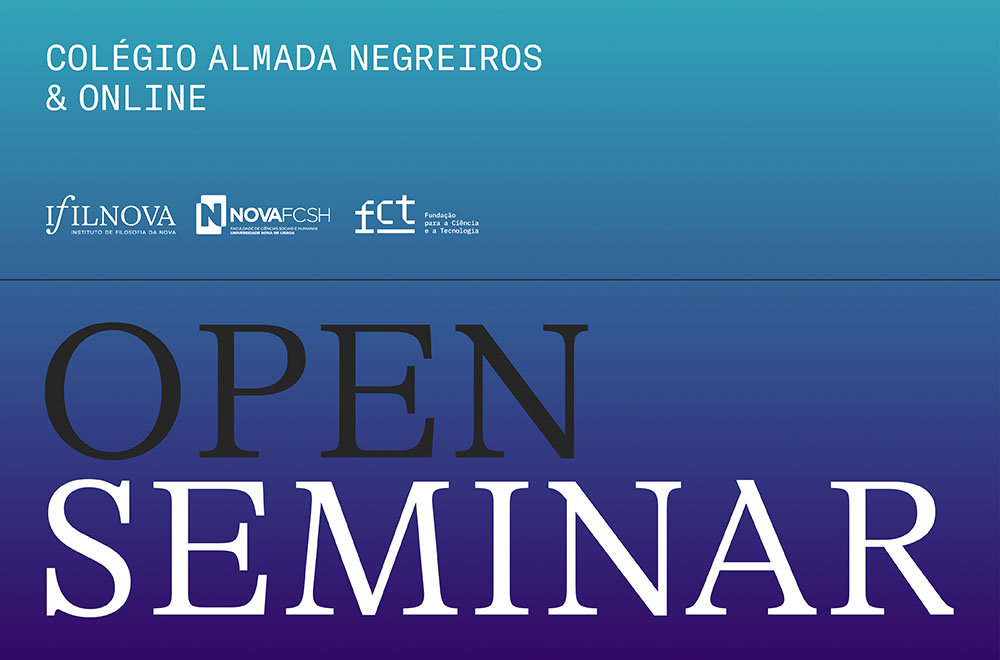Formalization, Explication and Conceptual Engineering

The IFILNOVA Open Seminar heartily invites everyone to a talk by Pedro Abreu (IFILNOVA).
Abstract
What do we do when we formalize a sentence or an argument? In this presentation, I advocate for a transformative understanding of formalization, framing it as explication and, as such, a form of conceptual engineering.
One common interpretation of what we do when we transpose ordinary discourse into a formal language is that we uncover some deep property already present in the original piece of language — or at least in the underlying thought — its logical form. Arguably, Russell and Wittgenstein, at some points in their notably volatile intellectual trajectories, came the closest to an explicit endorsement of this view. Others, such as Davidson and Montague, can also be seen as contributing to this lineage, albeit with a different approach oriented towards the systematic characterization of natural languages.
Alternatively, some perspectives acknowledge a significant transformation during formalization. Frege, Carnap, and Quine align with this camp. Notably, as some authors have recently pointed out (e.g., Brun 2014), Carnap’s (1950, 1963) account of explication provides an especially adequate notion — a general, well-developed, and reflexively sophisticated one — with which to make sense of formalization and the element of change inherent in it. Moreover, Carnapian explication is widely recognized as an early manifestation of conceptual engineering (e.g., Brun 2016, Cappelen 2018) and is regularly listed among the first self-aware expressions of a critical and ameliorative perspective on our conceptual resources.
Against this backdrop, my primary objective in this presentation is to provide a more comprehensive account of how the familiar procedure of formalization into a logical language — as typically practiced, for instance, in Logic classes — aligns with Carnap’s characterization of explication. Incidentally, attention to formalization brings to light a certain neglected aspect or potentiality of the more general practice of conceptual engineering.
My second goal is to articulate and assess an important challenge to the Carnapian method — the change of subject challenge — as it applies specifically to the problem of formalization. Building on Strawson’s (1963) critique of Carnap’s explicative approaches to philosophical problems, I reflect on the possibility and consequences of certain problematic deviations from the initial sentence or argument during the formalization process. Once again, this is done with an eye on possible implications to the broader field of conceptual engineering.
REFERENCES
Brun, G. (2014). Reconstructing Arguments: Formalization and Reflective Equilibrium. History of Philosophy & Logical Analysis, 17(1), 94–129. https://doi.org/10.30965/26664275-01701006
Brun, G. (2016). Explication as a Method of Conceptual Re-engineering. Erkenntnis, 81(6), 1211–1241. https://doi.org/10.1007/s10670-015-9791-5
Cappelen, H. (2018). Fixing Language: An Essay on Conceptual Engineering. Oxford University Press.
Carnap, R. (1950). Logical Foundations of Probability. Chicago, IL, USA: Chicago University of Chicago Press.
Carnap, R. (1963). Replies and systematic expositions. In P. Schilpp (Ed.), The philosophy of Rudolf Carnap (pp. 859–1013). Lasalle, IL: Open Court.
Strawson, P. (1963). Carnap’s Views on Constructed Systems Versus Natural Languages in Analytic Philosophy. In P. Schilpp (Ed.), The philosophy of Rudolf Carnap (pp. 859–1013). Lasalle, IL: Open Court.
Everybody is welcome!
For online participation, please use the following link.
This event is organized by E. Rast. The purpose of this seminar series is to give researchers a platform to discuss ongoing work and problems in the philosophy of language, epistemology, argumentation, metaethics, and related areas. For administrative inquiries, please contact Erich Rast at erich@snafu.de.
Event supported by the Foundation for Science and Technology (Fundação para a Ciência e para a Tecnologia) of the Portuguese Ministry of Education and Science under the project UIDB/00183/2020.

